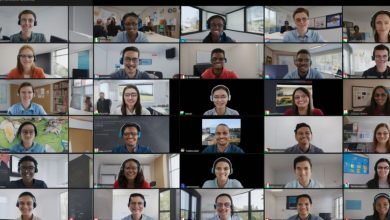Paid Internships Abroad Through Cultural Exchange Grants
Imagine gaining invaluable professional experience in a vibrant foreign city without paying out of pocket for tuition or room and board. Paid internships abroad funded by cultural exchange grants make this dream a reality. Whether you aspire to conduct scientific research in Germany, teach English in Japan, or contribute to community development in Spain, these grant programs cover stipends, travel allowances, and living expenses—allowing you to focus entirely on personal and career growth. In this article, you will learn what cultural exchange grants are, uncover the benefits of funded internships overseas, explore top programs you should consider, understand eligibility requirements and application steps, and discover budgeting strategies to maximize your experience. By the end, you’ll have all the tools you need to find, apply for, and thrive in a paid internship abroad.
What Are Cultural Exchange Grants for Internships?
Definition and Core Concept
Cultural exchange grants provide financial support to individuals who undertake internships abroad with the explicit goal of fostering cross-cultural understanding, professional development, and long-term global partnerships. Unlike traditional scholarships that often focus solely on academic study, these grants typically include components that encourage interns to engage with local communities, learn a new language, and serve as cultural ambassadors for their home countries. Key components of these grants usually encompass:
-
A monthly stipend or salary that covers living expenses in the host country
-
Travel allowances for round-trip airfare between home and host countries
-
Health insurance to ensure access to medical care abroad
-
Mentorship support from local professionals or program coordinators
By combining financial assistance with structured cultural activities and professional mentorship, cultural exchange grants create an immersive environment where interns develop both technical skills and intercultural competencies.
Types of Grants and Funding Models
Cultural exchange grants for paid internships come in various forms—each supported by governments, nonprofit organizations, universities, or corporate partners. Understanding these funding models will help you choose the right program:
-
Government-Sponsored Programs
National agencies often fund internships that align with diplomatic goals or workforce development strategies. Examples include Fulbright, which supports U.S. citizens conducting graduate-level research or internships abroad, and DAAD RISE, which funds STEM undergraduates for summer research in Germany. -
Nonprofit and Foundation Grants
NGOs and foundations such as AIESEC and World Learning offer paid internships focused on social impact, leadership development, and cultural immersion. These organizations often partner with local nonprofits or businesses to create structured internship placements. -
University-Funded Exchange Scholarships
Many universities participate in international exchange frameworks like Erasmus+, which provides stipends and travel support for students to intern in another European Union country. These programs often require home and host institutions to sign inter-institutional agreements. -
Corporate-Sponsored Initiatives
Some multinational companies collaborate with government or nonprofit partners to sponsor interns. These grants typically target fields like engineering, business, or digital marketing and include mentorship from corporate professionals in the host country.
Benefits of Paid Internships Through Cultural Exchange Grants
Financial Advantages
-
Tuition- and Placement-Fee Waivers
Most cultural exchange grants eliminate any program or placement fees, reducing the financial barrier to accessing an international internship. You won’t need to pay for placement services or program administration. -
Monthly Stipend or Salary
Interns receive a living allowance calibrated to local costs—whether it’s €1,000 per month in Germany through DAAD RISE or USD 1,200 per month for a Fulbright internship in Europe. This stipend typically covers housing, meals, and daily expenses. -
Travel and Visa Support
Cultural exchange grants often include round-trip airfare or a travel reimbursement and assistance with visa application fees. This benefit saves you hundreds—even thousands—of dollars upfront. -
Health Insurance Coverage
Comprehensive health insurance is frequently part of the package, ensuring you have access to medical care without additional expenses or hassle arranging coverage on your own.
Professional and Career Growth
Skill Acquisition and Industry Exposure
Participating in a paid internship abroad through a cultural exchange grant immerses you in a fully functioning professional environment. For example, a DAAD RISE intern might work in a German university lab, learning advanced research techniques in a field like synthetic biology or renewable energy. Meanwhile, a Fulbright intern embedded in a foreign public policy office gains hands-on experience drafting policy briefs, attending stakeholder meetings, and collaborating on cross-border initiatives.
Resume and Networking Impact
Securing and completing a funded internship overseas signals initiative, adaptability, and cross-cultural competence—qualities highly valued by employers. You’ll return home with real-world projects documented, tangible achievements—such as co-authoring a research paper or leading a community workshop—and a network of international colleagues. These relationships often lead to future collaborations or references when applying for graduate school or early career positions.
Cultural and Personal Development
Cross-Cultural Adaptability
Living abroad forces you to navigate new social norms, business etiquettes, and everyday routines—whether it’s learning to use the Paris Métro or understanding Japanese workplace hierarchy. Each small challenge you overcome—ordering lunch in a foreign language, negotiating local rental contracts, or simply greeting colleagues appropriately—builds your confidence and resilience.
Language Proficiency
Nothing accelerates language learning like immersion. If your host country’s primary language is German, Spanish, or Mandarin, your unpaid or paid interactions—team meetings, casual conversations with roommates, or shopping at local markets—rapidly expand vocabulary and comprehension. Over the course of a three- to six-month internship, interns often advance several proficiency levels, which opens career doors that require bilingual or multilingual candidates.
Top Cultural Exchange Grant Programs for Paid Internships
Fulbright Student Program (USA)
The Fulbright Student Program, administered by the U.S. Department of State, offers U.S. citizens fully funded opportunities to conduct graduate-level research or internships in over 140 countries.
-
Benefits
-
Monthly stipend ranging from USD 1,000 to USD 2,500, depending on the country’s cost of living
-
Round-trip airfare and housing allowance, usually provided through affiliation with a host institution
-
Health and accident insurance coverage for the entire grant period
-
Access to Fulbright professional development workshops and local networking events
-
-
Eligibility
-
Must be a U.S. citizen holding a bachelor’s degree or equivalent
-
Strong academic record and clear proposal for internship or research objectives
-
Language proficiency appropriate to the host country (often demonstrated via transcripts or test scores)
-
-
Application Timeline
-
Application opens in February; materials due around October–November for grants commencing the following academic year
-
Requires academic transcripts, personal essays, letters of recommendation, and a detailed project proposal
-
DAAD RISE (Research Internships in Science and Engineering)
The DAAD RISE program sponsors STEM undergraduates from North America, the UK, and Ireland to conduct summer research internships at top German universities and research institutions.
-
Benefits
-
Monthly stipend of €1,000 to cover living costs
-
One-time travel allowance of €300 for visa and transportation expenses
-
Health insurance coverage for the duration of the 10- to 12-week program
-
Access to DAAD networking events and professional enrichment workshops
-
-
Eligibility
-
Enrolled undergraduate pursuing a degree in biology, chemistry, physics, engineering, or a related field
-
Minimum GPA requirement (typically 3.2/4.0 or equivalent)
-
Submission of a research proposal co-signed by a German research supervisor
-
-
Application Timeline
-
Opens in December; deadline in January for summer placements
-
Requires academic transcripts, two letters of recommendation, a descriptive project proposal, and proof of German language proficiency (basic level) or English as working language
-
Erasmus+ Traineeships (European Union)
Erasmus+ funds internships for students and recent graduates within the European Union, fostering mobility and professional development across member states.
-
Benefits
-
Monthly grant ranging from €350 to €700, depending on host country living costs
-
Contribution toward travel expenses, typically based on distance from home university to host organization
-
Opportunity to earn ECTS credits recognized by home institutions (for academic programs)
-
Access to language courses and pre-departure orientation through home universities
-
-
Eligibility
-
Must be enrolled in an Erasmus+ participating institution or have recently graduated (within 12 months)
-
Internship duration between 2 and 12 months; no upper limit on total Erasmus+ mobility days per cycle
-
Signed Erasmus+ Placement Agreement between sending institution, trainee, and host organization
-
-
Application Timeline
-
Deadlines vary by home institution; typically require application at least three months before start date
-
Home universities select candidates and coordinate with host organizations to confirm placement details
-
AIESEC Global Internship (NGO-Supported)
AIESEC, a global youth-run organization, connects young people to paid internships—called “Global Talent”—in areas such as marketing, education, and development.
-
Benefits
-
Varies by host country: monthly stipend designed to cover a portion of living costs, plus host support in securing accommodation
-
Visa guidance and pre-departure cultural orientation facilitated by local AIESEC chapters
-
Ongoing mentorship from AIESEC volunteers and host organization supervisors
-
Engagement in leadership development workshops organized by AIESEC
-
-
Eligibility
-
University students in their final two academic years or recent graduates (within two years of graduation)
-
Demonstrated leadership experience—such as running campus clubs or volunteering in communities
-
Flexible language requirements; some internships require English, others require local language proficiency
-
-
Application Timeline
-
Rolling applications—positions posted year-round, with varying start dates depending on host organizations
-
Requires CV, cover letter tailored to internship role, and completion of an online interview process
-
World Learning’s Gilman International Scholarship
Although primarily designed to fund study abroad programs, the Gilman Scholarship can be applied to internship costs when the internship is directly tied to academic credit or is part of a study program.
-
Benefits
-
Award amounts up to $5,000, with an additional $3,000 for recipients studying critical language programs
-
Preference given to U.S. Pell Grant recipients, expanding access for low-income students
-
Requirement to share experiences and outcomes through a community service project upon return
-
-
Eligibility
-
Must be a U.S. citizen receiving a Pell Grant during the application cycle
-
Must apply for an eligible semester, summer, or academic-year program abroad—internships qualify if integrated into academic coursework
-
Strong essay responses demonstrating personal, professional, and academic motivations
-
-
Application Timeline
-
Two application cycles: one in early spring for fall and academic-year programs, another in early fall for spring and summer programs
-
Requires transcripts, FAFSA verification, a statement of purpose, and a community engagement plan
-
Other Emerging Opportunities
-
Mitacs Globalink Research Internship (Canada)
Provides 12- to 24-week research internships at Canadian universities for undergraduates from select countries in fields such as AI, renewable energy, and public policy. Benefits include CAD 6,000–CAD 8,000 stipend, travel subsidy, and access to professional development workshops. -
Chevening Internship Awards (UK)
Supported by the British Foreign, Commonwealth & Development Office, offers placements with UK-based organizations focused on global development. Benefits include a defined stipend, mentoring by Chevening alumni, and leadership training sessions. -
J-1 Summer Work Travel Internships (USA)
Combines summer internships with cultural exchange for students from over 100 countries. Stipends vary by host employer; includes visa sponsorship, orientation programs, and access to local events that deepen cultural understanding.
Eligibility and Application Process
Common Eligibility Requirements
Most cultural exchange grant programs share similar baseline criteria. While each program has unique specifications, consider the following common requirements as you prepare to apply:
-
Academic Standing
-
Minimum GPA (typically 3.0 on a 4.0 scale) or equivalent, with evidence of strong coursework related to the internship field.
-
Enrolled as a full-time student (undergraduate or graduate) or recent graduate (within 12–24 months) at an accredited institution.
-
-
Citizenship or Residency Status
-
Many programs restrict eligibility to citizens of participating countries—U.S. citizens for Fulbright and Gilman, EU nationals for Erasmus+, and Canadian citizens for Mitacs Globalink.
-
Some programs accept permanent residents or dual nationals; always verify host program guidelines.
-
-
Language Proficiency
-
English proficiency tests (IELTS, TOEFL) often required for programs conducted in English.
-
Host-country language proficiency (DELF for French, TestDaF for German) may be required or preferred for specific grants like DAAD RISE.
-
-
Age and Enrollment Status
-
Most require interns to be currently enrolled in undergraduate or graduate programs.
-
Age limits vary—Mitacs Globalink often restricts to undergraduates under 30, while Fulbright places no specific age cap beyond academic credentials.
-
Crafting a Strong Application for Internship Grants
-
Research and Align With Program Objectives
-
Examine each program’s mission—Fulbright emphasizes mutual understanding, DAAD RISE targets STEM research, and Erasmus+ focuses on academic credit.
-
Choose a grant that aligns with your academic major, career aspirations, and cultural interests.
-
-
Prepare Documentation
-
Academic Transcripts: Request official records well in advance; some institutions require translation and notarization.
-
Curriculum Vitae (CV)/Résumé: Highlight relevant coursework, research experience, leadership roles, and any prior international exposure.
-
Letters of Recommendation: Secure at least two endorsements from professors or professional mentors who can speak to your academic potential, adaptability, and work ethic.
-
Statement of Purpose/Project Proposal: Articulate your internship objectives, the anticipated impact on your professional trajectory, and how the cultural exchange element will enrich your experience.
-
-
Highlight Cross-Cultural Competence
-
Provide concrete examples: language immersion experiences, volunteer work with diverse communities, or leading multicultural student organizations.
-
Emphasize open-mindedness, adaptability, and your ability to navigate unfamiliar social contexts.
-
-
Satisfy Technical Requirements
-
Language Tests: Register for IELTS or TOEFL at least three months before the application deadline to allow time for retakes if necessary.
-
Visa Preparations: Gather documents for visa application—such as proof of financial support, invitation letters, and insurance certificates—as soon as you receive the grant award.
-
-
Submit Application Early
-
Avoid last-minute technical issues by completing all application components at least one week before the deadline.
-
Maintain close communication with reference writers to ensure letters are submitted on time.
-
Proofread essays multiple times and enlist a mentor or advisor to provide feedback on clarity, coherence, and persuasive impact.
-
What documents are needed to apply for paid internship cultural exchange grants?
-
Official academic transcripts and diplomas
-
Curriculum Vitae or résumé highlighting skills and leadership experiences
-
Two to three letters of recommendation from professors or employers
-
Detailed project proposal or statement of purpose outlining internship goals
-
Language proficiency certificates (IELTS, TOEFL, DELF, TestDaF) if required
-
Copy of valid passport or national identification document
-
Proof of health insurance coverage or a medical clearance certificate
-
Passport-size photographs and any required biometric information
-
Recent criminal background check or police clearance certificate (for certain programs)
Budgeting and Financial Planning for Interns Abroad
Estimating Total Costs vs. Stipend
Initial Expenses
-
Travel Costs
-
Round-trip airfare can range from USD 600 (within Europe) to USD 1,200 (transatlantic) or higher for remote locations like Australia or Asia. Always compare multiple airlines and booking times to secure the best fares.
-
-
Visa Application and Permit Fees
-
Schengen visas typically cost €80; J-1 Exchange Visitor visas run about USD 160 plus SEVIS fees. Factor in any biometric service charges if required.
-
-
Program or Agency Fees
-
Some nonprofit placements through organizations like AIESEC may charge a placement fee of USD 200–USD 600. Government-funded programs generally do not have placement fees but may require a refundable security deposit.
-
-
Pre-Departure Language or Cultural Orientation
-
Optional workshops or courses can cost between €100 and €300 per month. Consider free online resources or language exchange meetups to supplement preparation without exorbitant costs.
-
Recurring Monthly Expenses vs. Earnings
| Expense Category | Estimated Monthly Cost (Germany) | Estimated DAAD RISE Stipend | Net Disposable Income |
|---|---|---|---|
| Accommodation (shared housing) | €300 | ||
| Transportation (local pass) | €60 | ||
| Mobile Phone & Internet | €30 | ||
| Groceries & Personal Items | €150 | ||
| Leisure & Sightseeing | €80 | ||
| Subtotal Expenses | €620 | ||
| Monthly Stipend | €1,000 | ||
| Net Disposable Income | €380 |
Although exact figures vary by city, this example illustrates that a DAAD RISE intern in Berlin can comfortably cover basic needs and still save or spend around €380 monthly. In higher-cost cities—such as Munich or Amsterdam—net disposable income may shrink, emphasizing the need for careful planning.
Money-Saving Tips for Internship Grantees
-
Leverage Student and Intern Discounts
Always carry proof of intern status—often accepted as student ID—qualifying you for discounts on transit passes, museum entries, or cultural events. In many European cities, young people under 26 receive 30–50% off public transport. -
Opt for Shared Accommodation or Co-Living
Platforms specializing in short-term rentals—such as WG-Gesucht in Germany or Roomster in Spain—offer furnished rooms with utilities included. Sharing an apartment with 2–3 other interns significantly reduces rent compared to solo housing. -
Cook in Bulk and Meal Share
Grocery shopping at local markets (e.g., Turkish markets in Germany, fresh produce stalls in Spain) can save up to 40% compared to supermarket prices. Prepare meals in large batches and share with roommates to cut down on individual food costs. -
Use Public Transportation and Cycling
Invest in a monthly pass if you plan to commute daily. Many cities also provide affordable bicycle rentals or bike-sharing services—sometimes free for the first 30 minutes—reducing reliance on pricier transit. -
Consider Part-Time Freelance Work (Where Permitted)
If your visa regulations allow limited external work, offer online tutoring in your native language or provide freelance services—graphic design, translation, or content writing—during evenings or weekends. Always verify local labor laws to avoid visa violations.
Measuring Success and Post-Internship Benefits
Setting and Tracking SMART Goals
-
Example 1: “Conduct a Stakeholder Presentation in German by Week Four”
-
Specific: Prepare and deliver a 15-minute presentation in German to the research team.
-
Measurable: Gather feedback from at least three colleagues to assess clarity and pronunciation.
-
Achievable: Practice with a local language tutor once weekly and rehearse slides with a mentor.
-
Relevant: Enhances both public-speaking and language skills in a professional context.
-
Time-Bound: Scheduled by the end of the first month, with feedback incorporated before month two.
-
-
Example 2: “Lead a Collaborative Research Project With Two German Colleagues and Present Findings at a Local Symposium”
-
Specific: Co-author a joint research poster on renewable energy innovations.
-
Measurable: Submit poster abstract to the symposium by Week Six, present findings to an audience of at least 20 attendees.
-
Achievable: Coordinate weekly planning meetings, assign clear tasks based on each member’s expertise.
-
Relevant: Demonstrates teamwork, project management, and specialized technical understanding.
-
Time-Bound: Poster finalized by month two; presentation scheduled in month three.
-
-
Example 3: “Expand Professional Network by Connecting With Five Local Industry Experts”
-
Specific: Schedule informational interviews with professionals in your field, such as R&D managers or marketing directors.
-
Measurable: Secure at least five one-hour conversations and follow up with a thank-you email and LinkedIn connection.
-
Achievable: Utilize program-sponsored networking events or alumni referrals.
-
Relevant: Enhances long-term career prospects and uncovers potential job opportunities.
-
Time-Bound: Complete all five meetings by program midpoint.
-
Leveraging Internship Experience for Future Opportunities
-
Resume Enhancement
Upon returning home, highlight quantifiable achievements: “Co-managed a research project on solar cell efficiency in a German laboratory, yielding a 12% performance improvement,” or “Developed bilingual marketing materials for a French startup, increasing online engagement by 25%.” Concrete data sets you apart in job or graduate school applications. -
Building Professional Networks
Maintain relationships with mentors, supervisors, and colleagues by sending periodic updates on your progress—whether pursuing graduate studies or launching a startup. Engage with alumni groups, attend virtual reunions, and participate in guest lectures to stay visible within international professional circles. -
Continuing Cultural Engagement
Leverage your international experience to join local cultural associations, volunteer with diaspora communities, or present at student-led cultural events. Sustained intercultural involvement keeps language skills sharp and expands global awareness—qualities valued by employers in nearly every industry.
Frequently Asked Questions (FAQs)
What is the difference between a cultural exchange grant and a paid internship program?
Cultural exchange grants combine financial support with structured cultural and language immersion components. While a paid internship program may simply offer a salary for work performed, a cultural exchange grant specifically emphasizes fostering cross-cultural understanding, professional growth, and global diplomacy alongside the internship.
Do I have to repay a cultural exchange grant?
Most cultural exchange grants are non-repayable scholarships. However, some programs—particularly government-funded ones—may require participants to return to their home country and work in a designated sector for a certain period. Always review grant terms and conditions carefully before accepting an award.
Can I work part-time outside my internship hours?
Visa regulations vary by country and program. Some visas strictly limit interns to their awarded internship duties, while others—especially those under working holiday schemes—permit part-time freelancing or part-time work. Check with your program coordinator and host country immigration authorities before pursuing additional work.
How do I handle language barriers in a paid internship abroad?
Many programs require basic proficiency in the host-country language and provide language courses or conversation partners to help interns improve. Immerse yourself by practicing daily—order food, ask for directions, and participate in local meetups. If the internship operates in English, clarify language expectations upfront and seek out informal language exchange groups to build fluency.
What safety measures do reputable cultural exchange programs provide?
Trusted programs conduct thorough vetting of host organizations, require comprehensive health insurance, and maintain 24/7 emergency support hotlines. They also provide pre-departure orientation on cultural norms and safety protocols, ensuring interns have clear guidance and local contacts should issues arise.
Conclusion
Paid internships abroad through cultural exchange grants open the door to professional advancement, language mastery, and deep cultural immersion—often at little to no personal cost. By understanding the range of grants available, from Fulbright and DAAD RISE to Erasmus+ and AIESEC, you can pinpoint the program that best aligns with your academic background, career goals, and cultural interests. Follow the outlined eligibility criteria and application steps to craft a standout submission, set realistic SMART goals to measure your success, and employ effective budgeting strategies to make every stipend euro or dollar count. Returning home with tangible achievements—published research, led community initiatives, or expanded professional networks—you will stand out in a competitive job market and possess the cross-cultural agility that global employers covet. Start researching early, prepare thoroughly, and embark on a transformative paid internship abroad that elevates both your career and personal growth.
Published on: 4 de June de 2025








